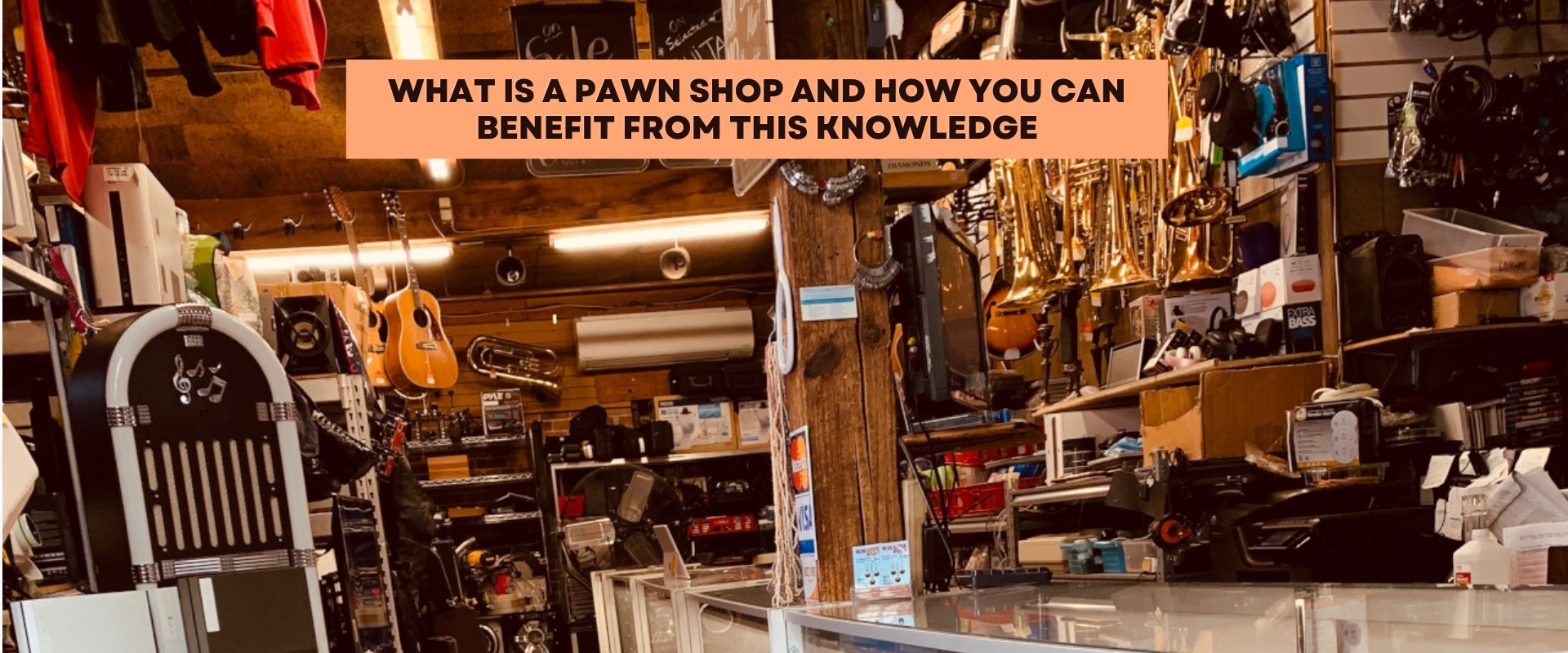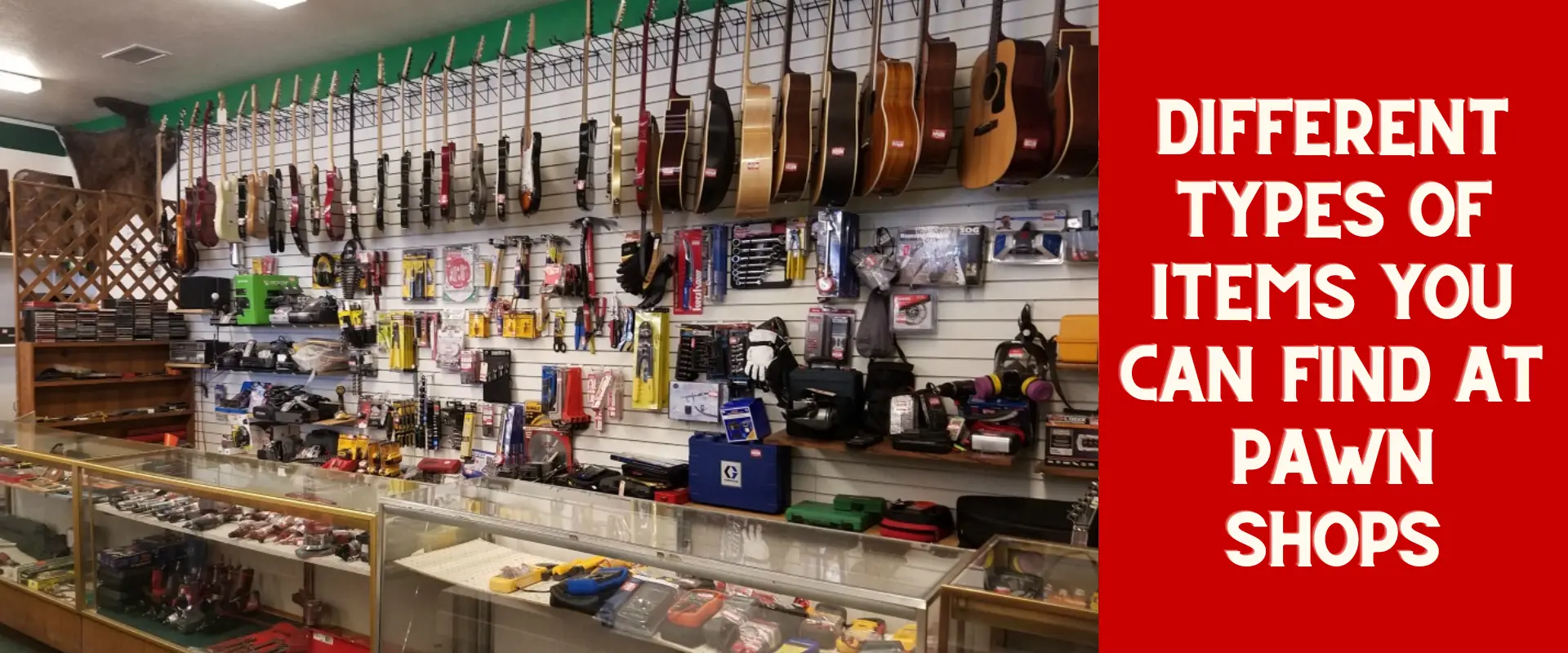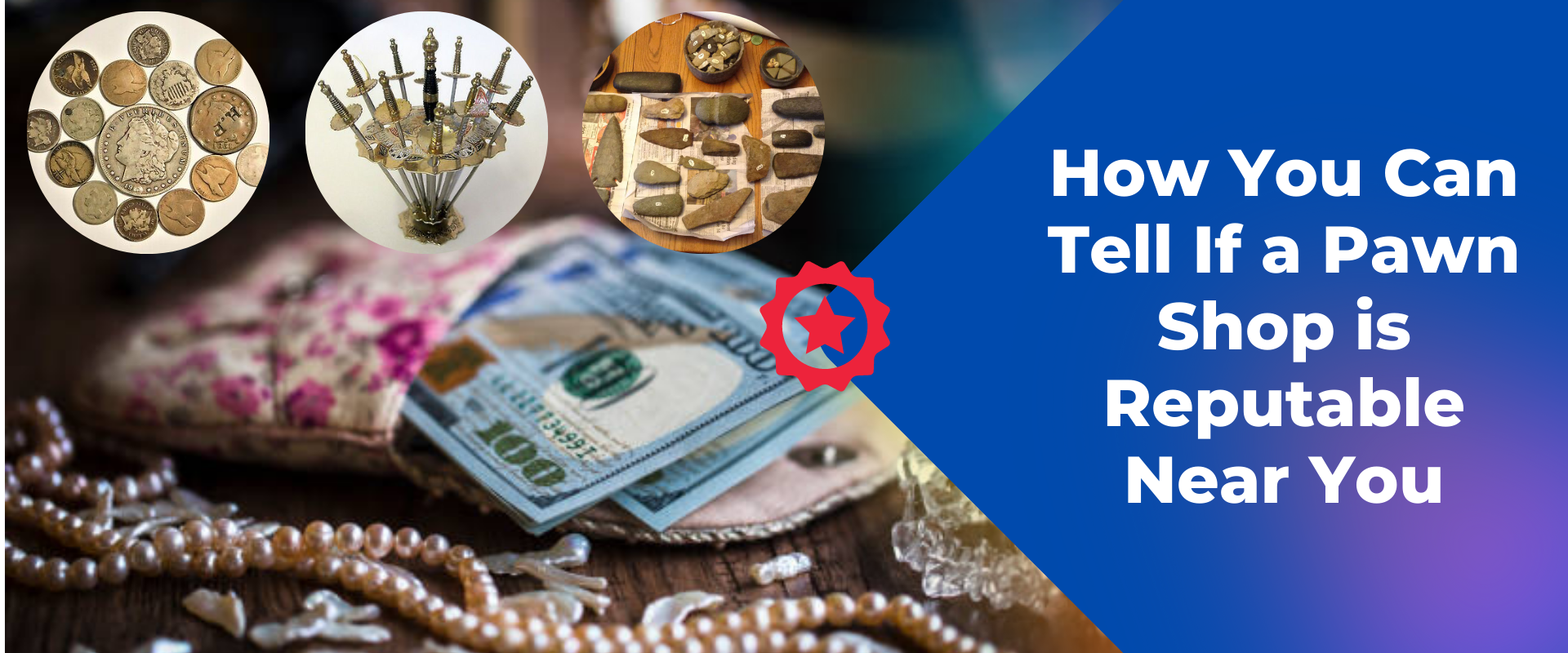Finding the Right Pawn Shops Near Me
Your Comprehensive Guide on How to Find the Right Pawn Shop Near You & How to Buy, Sell and Tell If You’re Dealing with a Reputable Pawn Shop
Your Comprehensive Guide on How to Find the Right Pawn Shop Near You & How to Buy, Sell and Tell If You’re Dealing with a Reputable Pawn Shop
Now you can discover the secrets to getting (or saving) the most money from your local pawn shop. We’ll show you how to find the right pawn shop near you and come out a winner in almost any transaction. We will discuss:
A pawn shop is a business that provides short-term loans to customers in exchange for collateral. This collateral is typically in the form of something valuable, like: jewelry, electronics, musical instruments, and more. The pawn shop will keep the item as collateral until the customer pays off the loan, usually with a high interest rate.
The customer has a defined amount of time to repay the loan, plus the interest, in order to reclaim the item being held for collateral. If the customer does not repay the loan before the deadline, the pawn shop can keep the item. The next step is to sell it, in hopes of a profit in excess of the loan and interest.
Whenever you’re negotiating with a business, it’s important to understand what the business is trying to accomplish. Is it volume or quality. Do they need to replenish inventory or get rid of what they have in a fire sale. Understanding the immediate goals of a business can work to your advantage in any negotiating.
Unlike traditional retailers that sell new merchandise you can find from a variety of places, pawn shops sell merchandise that is used, thereby saving you a lot of money, or unusual that you cannot find anyplace else. You can often find great deals on items at pawn shops, as they will often be priced lower than they would be if they were sold elsewhere.
The main reason for this is because the shop does not want to hold onto inventory. It’s important to make a profit and use that money for the next loan or purchase. This is where you want to pay close attention.
Pawn shops are also a great place to visit if you're in need of a short-term loan. They offer low-interest loans in exchange for your items, with the option to retrieve your item by repaying the loan and interest within a set period of time. The loan amount is based on the value of your item, and you can be confident that you'll receive a fair offer.
If a pawn shop has a big pile of used tools that have been sitting there for a while, you can expect to get a low loan or sale amount if you have tools. However, if you want to buy tools, you have a big advantage negotiating with the shop, because they will most likely want to convert the excess tools into cash for operations. Pay attention to these clues so you can decide if you will have leverage in your negotiations with that pawn shop.
But pawn shops are not just about loans and selling items. They're also a valuable resource for those who want to find great deals on a wide variety of items. Whether you're looking for jewelry, electronics, musical instruments, or collectibles, you're sure to find what you're looking for at a pawn shop. And, with the constantly changing inventory, you never know what amazing item you might discover on your next visit.
Pawn shops have been a trusted source of quick cash for centuries, providing a convenient and accessible alternative to traditional loans. Whether you're in need of a small loan or want to sell an item of value, a pawn shop can be a valuable resource.
Here are some of the benefits of using a pawn shop for your financial needs:
One of the biggest factors determining the kind of merchandise a pawn shop sells is where the pawn shop is located. High end neighborhoods will have pawn shops with nicer, high-end goods. This can include fine jewelry, high-end electronics, pristine musical instruments, antiques, and more.
Pawn shops in tougher neighborhoods will stock their shelves with items desired by the local residents and are more moderately priced. While they can still offer many of the same category of items in high-end neighborhoods, they will be a notch down in quality or uniqueness. However, you can still find exceptional deals in these types of pawn shops.
Here are some of the most common items you can find at just about any pawn shop:
When looking for the best pawn shop near you, there are a few factors to consider. Here are some tips for finding the best pawn shop near you:
By following these steps, you can find the best pawn shop near you that meets your specific needs and provides a positive experience.
If you’re looking for the best deals at pawn shops, there are a few things you can do to ensure you get the best deals possible. Here are some tips for finding the best deals at pawn shops:
Pawn shops offer a quick and convenient way to get a loan when you need cash fast. Whether you're looking to pawn an item of value or use it as collateral for a loan, the process is relatively straightforward. Below we outline the steps you need to follow to get a loan from a pawn shop, from researching the best pawn shop for your needs to repaying the loan and retrieving your item(s). By understanding the process ahead of time, you can ensure a smooth and stress-free experience.
Pawn shops can be a great place to find unique items, make some extra money, get a loan, and explore a unique world of valuable objects. When looking for the best pawn shop near you, make sure to research the shop, ask around for recommendations, consider the location, and compare prices. When visiting a pawn shop, research the items they have for sale, ask questions, and negotiate for the best deals. Lastly, make sure to check that the pawn shop is reputable and trustworthy. With these tips, you can find the best pawn shops near you and make the most of your pawn shop visits.
Additionally, it is helpful to be prepared to negotiate with the pawn shop, as they may initially offer a lower price than what you are hoping to receive. Cleaning and repairing the item can also help increase its value. It is also important to be honest and upfront about the item's condition and any known issues, as this can affect the price the pawn shop is willing to offer.
Another strategy is to be aware of the pawn shop's return policy, in case you change your mind or find an issue with the item after purchase. It's also a good idea to ask about the history of the item if possible, such as how long the pawnshop has had it and if it's been repaired or restored.
Lastly, you can shop around different pawnshops and compare prices before making a purchase, as prices and conditions may vary from shop to shop.
On the other hand, a pawn shop that doesn't have these characteristics may not be as reputable. They may have a history of engaging in unfair or unethical practices, and may not have the same level of expertise or customer service as a reputable pawn shop. It's important to do your research and check the reputation of the pawn shop before doing business with them.
Pawn shops also may not have the necessary insurance to cover the value of your items in case of loss or damage. And also, they may not have the proper security measures in place to protect your items from theft or damage.
If you have valuable items that you need to store, it may be better to look into a safe deposit box at a bank or a professional storage facility that specializes in storing valuable items. These facilities often have better security and insurance to protect your items, and they can provide you with peace of mind knowing that your items are safe and secure.
However, if you are in need of a short-term loan and have valuable items that you can use as collateral, pawning them at a reputable pawn shop might be a good option. Just make sure you understand the terms of the loan and the pawn shop's policies and fees.
Searching online for pawn shops can also provide you with a way to compare prices, services, and reputation of different pawn shops before you visit them. You can check online reviews, ratings, and customer feedback, which can be helpful in finding a reputable pawn shop.
It's important to remember that while searching online is a convenient way to find a pawn shop, it's still important to research the pawn shop before visiting it to ensure it is reputable and has the necessary licenses and certifications to operate in your area. In addition, it's recommended to visit the pawn shop in person and inspect the item you're interested in buying before making a purchase, as it will give you a better idea of the item's condition and you can negotiate the price in person.
It's important to remember that regulations and requirements for pawn shops vary by state and might have been changed since my last knowledge cutoff, it's a good idea to check with your state's regulatory agency to confirm the requirements.
Also, it's important to note that a pawn shop can be licensed but still not be reputable or fair, so it's still important to research the pawn shop's reputation, fees and policies, and customer feedback before doing business with them.
Pawnbrokers are required to register with the California Department of Justice and renew their registration every two years.
It's important to note that regulations and requirements may change over time and might differ between locations, so it's a good idea to check with the California Department of Justice or your local authorities to confirm the current requirements and regulations for pawn shops in California.
Quick cash: Pawn shops can provide you with quick cash by lending you money against your item as collateral. This can be a good option if you need cash fast and don't have the time to wait for a traditional loan to be approved.
^ We will issue you 35,000 Bonus Points with your paid purchase. The Smart TV is a 24" TV with apps for watching streaming videos. You may also use these Points for this or any other item we offer at our Reward Points Redemption Center. * According to Account terms. Certain restrictions apply.






